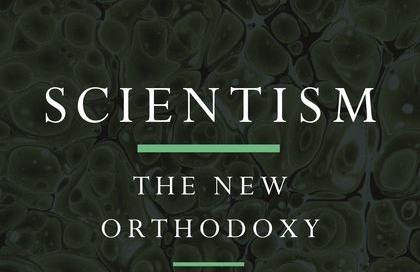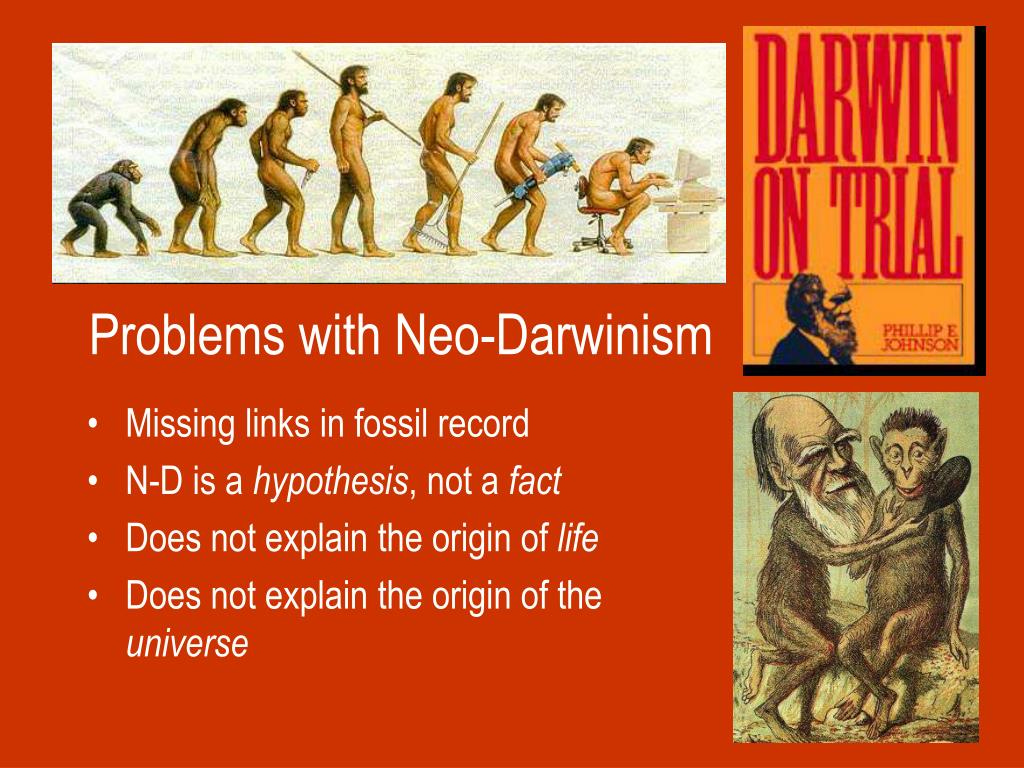Scientism: The New Orthodoxy. A metaphysical and religious project.
Spawned by the 'Enlightenment'. Scientism is the corruption of science and a framework of belief in which there is only 'one' view of life, reality, existence and the future. One 'scientism' to rule.
In 2016 a group of academics published a book entitled ‘Scientism: The New Orthodoxy”, edited by Richard Williams a professor of psychology at Brigham Young University, and Daniel Robinson a fellow in philosophy at Oxford. How prescient in an era of monstrously fake science including Corona, the Climate, Transgenderism and other illiteracies, cults, and totalitarian theologies. The book is worth reading if anyone is interested in understanding the crucial differences between Scientism, which many of us would define as a ‘religion of Science’, as opposed to real scientific inquiry. It is refreshing to see some academics pushing back against the imposition of Globalism, or the ‘military-industrial’ complex mentioned by Eisenhower, which is the takeover by the state, of inquiry, education, information, philosophy, culture and material investigations. Scientism as a metaphysical exercise comes right out of the ‘Enlightenment’ and the deracination of the past including culture, history and tradition.
The cult or religion of Scientism is a metaphysical and philosophical program. The intent is to capture all of humanity’s endeavours within its unitarian, uniformitarian, and quite totalitarian construct. All human experiences, whether in ‘hard science’ or ‘material’ matters, or in softer-metaphysical and immaterial realms, will be managed by ‘The Science’. Scientism is thus like spilled water; it knows no natural boundaries. There is a chapter for example by philosopher Roger Scruton which appropriately analyses the corruption of the humanities and ‘social sciences’ by this cult of Scientism, including history, archaeology, art and even music.
Scientism is a frontal assault on every aspect of material and immaterial existence. Daily we are now told that women don’t exist, the family unit is right wing fascism, an increase in plant food means the end of the world, a virus mandates poisoned injections, time is endless and unchanging, the shrew became you, and only ‘government’ can discern and spread truth and real ‘information’. ‘Follow The Science’ demands the cult and religion of Scientism.
So, what is Scientism according to this book? First and quite obviously it is clear that criticising Scientism is not itself a critique or a disavowal of real science. The two concepts have little in common. In essence Scientism is the corruption and bastardisation of real science.
‘Rather, it (Scientism) attempts to hijack science to support metaphysical commitments in which science has no particular interest, and to which it owes no particular debt.’
‘The point is that scientism entails a metaphysical commitment to naturalist reductive, or emergent materialism and tries to define science in a way that includes not only a commitment to empirical methods, but also to this particular metaphysics’. (p. 3)
This means that real science is not tied to, nor dependent on a worldview. For example, as a Catholic, I can investigate material science and discover a ‘law’ as the Catholic astronomer Copernicus did, of heliocentricity (without the necessary and attendant mathematical proof it must be said supplied 100 years later by Kepler). In this endeavour the same could have been done by a Confucian, Chaldean, Hindu, Musulman, Atheist or anyone from any other religion or cult. The ‘law’ can be verified outside the context of my worldview and any experiments can be confirmed and verified by anyone else who does not accept my metaphysical worldview.
Indeed, anyone can reject my ‘scientific’ law using any repeatable process or inquiry based on transparent experimentation and results. As Popper and Feynman stated, the theory, or law, can be disproven. In this regard most of what passes for ‘modern science’ fails these basic principles. Evolution, Climate, Corona and many other metaphysical projects cannot be disproven, given that any answer supports the cult’s claim, with their ‘evidence’ based on experiments and data which cannot be replicated or reproduced and are in fact quite often repudiated. Further when the tenets of the cults are completely disproven, they are ignored by the self-interested gatekeepers of Scientism, who control money, power, information and schooling.
Helpfully this book elaborates on the ‘principles’ informing the cult of Scientism and its doctrine. Basically, there are 4 ‘principles’ which provide the metaphysical framework for Scientism.
1-Only certifiable ‘Scientific’ knowledge is relevant. By default, this means there is a certified and specific ‘method’ and approach to knowledge that is controlled by those with the proper knowledge.
2-Given the first principle, there is a second which follows, namely that only materialism and natural science are appropriate to explain all of existence including the immaterial and metaphysical.
3-Based on principle #2, natural science can rightly lay claim to being the only arbiter of truth for the arts and ‘softer sciences’, providing ‘rigour’ and ‘reality’ to the non-scientific disciplines.
4-As a foundation for the above, Scientism is thus a metaphysical claim not just a natural science endeavour. The merger of ‘science’ with metaphysics falls directly out of the ‘Enlightenment’ which sought to banish religion, immaterialism, spirituality, and even cultural, social and historical mores and traditions. Scientism demands a full commitment from its practitioners and an exaggerated, egotistical disregard for any other interpretation of reality or the immaterial.
Summarising the above the book states correctly, ‘The effect of scientism is the same as what Daniel Dennett (1995, p. 63) described as the effect of Darwinism – as a universal (intellectual) acid that eats through everything, leaving everything somewhat recognisable, but fundamentally changed.’
The acid of Scientism corrodes reality. Darwinism which has precious little to do with science, is an obvious example but one that can be extended to many cults of ‘scientific’ belief, which offend real science.
The underlying metaphysics of Scientism is important to grasp. There are 5 key philosophies which are the foundation of Scientism and all of them are derived from the ‘Enlightenment’. Louis Dupre (2004) and others are used to exemplify the key themes over the past 300 years which has led to the present parlous state of common-sense, real science, and our view of the real world.
1-Aristotleian-Descartesian ‘rationalism’ (Dupre p. 8), with the mind as the sole source of truth.
2-Emancipation or the ‘freeing’ of the mind from believing in anything outside of the natural sciences.
3-Mechanisation, or the world as a mechanical, running clock, beholden to natural scientific laws, impersonal, cold, uncaring, fully and only deterministic.
4-Hegelian determinism, or the interaction of different strands of thought and experience, to create a new ‘strand’ or path forward, in a process that is entirely deterministic, unchanging and fated.
5-Positivism or ‘progressivism’ meaning that an ‘enlightened’ rational mind can reorder society, the world, our existence to ensure ‘progress’ (Comte’s 19 c view).
In essence Scientism is a metaphysical program, whereby the natural sciences subsume and ingest all competing ideas of the human condition including theology, immaterialism, history, culture, and any other explanation of reality and human existence.
In the all-encompassing doctrine of ‘Scientism’, the ‘scientific elite’ and its allies are the only people capable of interpreting what is truth and what is real. This cadre of priests, bishops, apostles and even Popes, behaves as a church and demands the same obeisance and belief as any church.
==
Some works cited by this book:
· Aristotle, The Nicomachean Ethics.
· Dennett, D. 1995, Darwin’s Dangerous Idea
· Dupre, L. 2004, The Enlightenment and the Intellectual Foundations of Modern Culture
· Feyerabend, P., 1995, History of the philosophy of Science
· Kuhn, T., 1962, The Structure of Scientific Revolutions
· Nagel, T. 2012, Mind and Cosmos








